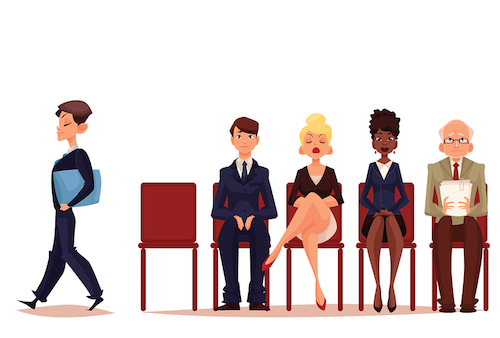
Job interviews can be stressful, but if you take the time to prepare yourself properly, you will have a better chance of making a good impression and getting the job.
Much of the interview preparation will depend on the specifics surrounding the position you are applying for, the company and the person who is conducting the interview. You want to show up totally prepared.
Research the Company
Visit the company’s website to learn about its products and services. Have a good understanding of the business before the interview.
Know the Position
Learn all you can about the position you are interviewing for. Most companies have given a detailed example of what the position entails in the job description. Study the information carefully so that you can easily answer any questions.
Arrive on Time
There are no exceptions to this rule. Several days before the interview drive to the location so you know exactly how long it takes to get there. On the day of the interview leave yourself plenty of time, get there 15 minutes early. There’s no quicker way to make a bad first impression than showing up late for a job interview.
Dress Appropriately
Find out what the company dress code is and dress a step up from the average. Your clothing should be clean and neat, shoes should be clean and appropriate for the outfit, your hair should be neatly brushed, and your fingernails should be clean and trimmed. Don’t overdo it on perfume or cologne, any jewelry or accessories should be minimal.
Body Language
Our body language conveys how we are feeling. During the interview you want to project confidence, enthusiasm, and professionalism. Stand and sit up straight, make eye contact, smile, remain relaxed. Avoid crossing your arms or legs and fidgeting which can make you seem nervous, defensive, or dishonest.
Greeting
Be sure you know the interviewer’s full name, address them professionally. In the past a handshake was expected, now you should shake their hand only if they offer first. Stand up and greet anyone who is introduced to you. Good manners make a good impression.
Be Prepared for Questions
Be prepared for the typical interview questions, practice your answers ahead of time. And make a list of the questions you want to ask. Being well prepared ahead of time is important. Some common questions you may be asked:
Tell me about yourself.
Walk me through your resume.
How did you hear about this position?
Why do you want to work at this company?
Why do you want this job?
Why should we hire you?
What can you bring to the company?
What are your greatest strengths?
What do you consider to be your weaknesses?
What is your greatest professional achievement?
Why are you leaving your current job?
How do you deal with pressure or stressful situations?
Where do you see yourself in five years?
Are you interviewing with other companies?
Salary & Benefits
Talk about salary and benefits only if the person interviewing you initiates the conversation. Often compensation is discussed later or during a second interview. If compensation does not come up during the interview this allows you time to research and evaluate the pay range and benefits after you have additional details about the position.
Practice
Practice with a friend or family member. Hold a mock interview, convey your relevant skills, interests, and goals. Run through explaining your strengths and accomplishments, have them ask some common interview questions, this gives you a chance to perfect your answers and you will feel more confident when the actual interview takes place.
Be Ready to Talk About Examples of Your Work
During the interview you will most likely be asked about your previous experience and the positions you held. Be prepared to give examples of your skills, specific types of duties you have performed, any volunteer or charity work you have done and clubs or organizations you are a member of.
Come Prepared
Take along several copies of your resume, references, letters of recommendation and your portfolio of work samples if you have them. Have your questions written down in a notebook and add notes during the interview. A phone is a great tool but taking your phone out every time you need to refer to your notes can be distracting to both you and the interviewer and can take away from actively participating in the conversation.
Be Respectful and Courteous to Everyone
Be courteous and respectful to everyone you meet, not just the person conducting the interview. This can include the parking attendant, receptionist, and others you meet along the way. They may all be asked to provide feedback on how you presented yourself.
Be Authentic & Positive
Showing a positive attitude and smiling can help keep the interview cheerful and productive. Speak clearly and make eye contact. When asked questions don’t embellish your answers, be truthful and genuine. Most people can tell when you are exaggerating or overstating your skills and accomplishments and it can come across as disingenuous.
Keep Answers Short & Focused
Most interviewers have a time limit, they may have other interviews scheduled for the same day. Keep your answers concise and focused. Don’t ramble or veer off topic. Say just enough to answer their questions completely.
Don’t Speak Poorly of Former Employers
Even if the job you had before was not ideal, don’t talk about that. This can make you seem petty and disagreeable, and they may worry you will present them in a negative light in the future, instead focus on the positive aspects of the job, your skills and accomplishments.
After the Interview
When the interview is over it is appropriate to ask what you should expect next. Send a thank you note the same day.